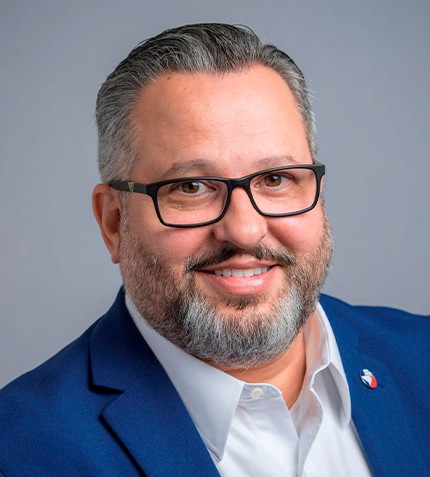
"2005 to 2010 was a transformational period for Vitamin D research; until then Vitamin D was considered to be beneficial to the bones; intense medical scrutiny has now established that Vitamin D is linked with a much broader range of health benefits, from prevention of diabetes, heart diseases, infertility and mental illness, along with being associated with immunity and general wellbeing."
Prashant Nagre
CEO, FERMENTA BIOTECH LTD.
Fermenta Biotech Ltd. (FBL) has a rich history rooted back in the fifties, with the establishment of International Franchise Ltd. Could you walk us through the journey that led to the company’s standing today?
On May 1st 1951, Dr. DVK Raju incorporated ‘International Franchises Private Limited’ a company specializing in toll manufacturing of pharmaceutical products on behalf of overseas MNC’s.
In 1963, the company established financial-cum-technical collaborations with N.V. Philips-Duphar, Amsterdam and The Crookes Laboratories, UK to form the Joint Venture Crookes-Interfran Limited.
To further develop its association with its research oriented collaborator Duphar B.V., the company changed its name to Duphar-Interfran Ltd. in 1971, and initiated the manufacture of Vitamin D3 and other Bulk Drugs.
In 1980, Solvay acquired Duphar B.V. thereby becoming the Joint Venture partner of the company.
In 1986, its subsidiary, Fermenta Biotech Ltd. (FBL), was established which specialized in the production of nature based enzymes (catalyst) for the production of Beta-Lactam antibiotics through the enzymatic route.
A demerger of its pharmaceutical division took place in 2002 in favour of Solvay Pharmaceuticals and realigning the shareholding of the company ensuring that the DVK group became a majority shareholder in Duphar-Interfran Ltd, which later changed its name to DIL Ltd.
Licensing of the Bulk Drugs Business to FBL took place in 2003 thereby bringing the pharmaceuticals and biotechnology businesses under one umbrella
Currently, DIL holds 91.2% of FBL’s shares.
FBL is one of the top three producers of Vitamin D3 API in the world and the only one in India. What has propelled Fermenta to take this lead and how does it maintain its unique market position?
We have been in the active production of Vitamin D for over 50 years, which makes us one of the oldest continuous producers of this molecule in this world, all thanks to the heritage from Phillips from as far back as the sixties.
Of course, this is the only vitamin that the body produces on its own, and twenty minutes spent in the afternoon sun is the best way of getting this vitamin. The health value of Vitamin D has increased exponentially over years. 2005 to 2010 was a transformational period for Vitamin D research; until then Vitamin D was considered to be beneficial to the bones; intense medical scrutiny has now established that Vitamin D is linked with a much broader range of health benefits, from prevention of diabetes, heart diseases, infertility and mental illness, along with being associated with immunity and general wellbeing.
Together with these findings, in the past 20 to 30 years, we have seen an urban shift, with lifestyle changes defined by less time spend outdoors, which results in less exposure to the sun and a lower Vitamin D production. In this scenario, food fortification along with supplementation become key alternative sources. By 2017, Vitamin D became the second most researched vitamin, with more than 4,000 research publications which came out annually over the last few years that demonstrate the interlinks with different systems in the body. Demand for Vitamin D has been steadily growing and we needed to meet it by increasing capacities and capabilities. Ten years ago, we had a very small presence abroad, but today we export almost all over the world. We offer Vitamin D into the pharmaceutical, nutrition and dietary supplements, food, veterinary, animal feed and rodenticides sectors. In terms of turnover, around 80% of our business is in Vitamin D.
Could you tell us more about your global footprint and the main markets you supply to?
To start with, around 80% of our revenues arises from exports. Seeing the potential abroad, we created an infrastructure that meets most international regulations. Our main markets are Europe and the US. We export to six continents and more than 50 countries, to over 300 customers. We possess accreditations from global regulatory authorities; therefore the quality of our products has been certified.
Another division of the business is in the biotech space, where Fermenta stands out through its innovative technology on enzyme catalysts. What is your competitive advantage in this area?
The biotech division contributes less than 10% of the overall revenue of the company, but it remains a focus area with great potential, especially in green chemistry. In this very knowledge-intensive industry, having been in the business for over 30 years grants Fermenta a key advantage. Starting in 1987, we have improved the process from genetic engineering, to fermentation purification enzymes. The last step is “immobilisation”, which means that you can reuse the enzyme from the first reaction into the second and third one, making the enzymatic reactions economical. If we are to replace traditional chemistry, the alternative has to be not only “green”, or environmentally friendly, but also economical in order to be accepted by the industry.
We have also been at the pioneering front for enzymatic solutions for synthesis of penicillin G derivatives, and we have gradually carried that knowledge to the next level, into the first generation cephalosporin antibiotics. Currently, Fermenta is working with both Indian and foreign companies to demonstrate there are friendlier ways to produce first generation antibiotics by enzymatic processes. Our heritage of working in this field for decades is a unique selling point.
Another interesting use of enzymes which we are exploring is in the creation of biofuels from used cooking oils. That way, we would be talking not only about green fuel, but also green chemistry to produce that fuel, which is a very innovative step that Fermenta wants to take.
Green Chemistry is not the only technology aligned with environmental concerns. Fermenta’s sewage treatment plants also uses biotechnology in an innovative way. How do you think this part of your business will develop in the future?
The company has had its biotechnology wing since 1987, staying ahead of others in terms of green chemistry, but also in terms of environmentally friendly manufacturing, which nobody paid any attention to in the past. Today, regulation, together with accountability to your own customers, means that investment in waste streams is a must. This is how we started looking at this aspect as a new potential. In India, the drive to urbanisation has made sewage a new problem that is being encountered. With our background of biotechnology, we had the proprietary-consortium microorganisms-which are very efficient in degrading sewage. For the last ten years, we have tried our hand in introducing this product to improve the degradation process of domestic sewage.
The waste water division is the third and smallest arm of the business, contributing 1% of total revenues, but we are braced for the opportunity to flourish in the future. Currently, we provide integrated solutions on waste water for domestic purposes. We also work with industries with an organic digestible ingredient, like the milk industry. Whilst small, this sector is very interesting because it includes a confluence of science, engineering and bio technology, so we feel like we are at the right place.
Taking into account Fermenta’s agile print in different sectors, could you share what is your vision for the future and what comes next in securing the company’s success?
As leaders in the sector, I am proud of the company’s evolution, its fast entry to global markets, its international accreditations and its footage in different segments. Moving forward, we are looking to continue to prove Vitamin D3’s versatility through a new use: in the last year, the EU and the EPA (Environmental Protection Agency in the US) approved the use of cholecalciferol as a rodenticide application.
India remains a focus area, due to its large demographic, in line with economic and political changes that we have witnessed. The launch of the national health insurance scheme, Rashtiya Swasthiya Bima Yojana, which will reach up to 40% of the population, represents a game changer. Currently, this policy is non-contributory, which means that the government will need to recover or find ways to finance this scheme, if it is to stay viable. This investment into sanitation is an essential step in the prevention of water borne diseases.
Within the next 5 years, I expect to see a greater focus falling on prevention. To give one simple example, a fracture is more expensive to treat than ensuring Vitamin D3 intake, which helps in preventing fractures. Following this logic, Fermenta wants to be at the forefront at providing quality ingredients to the growing nutritional industry within India, expanding to other ingredients such as antioxidants, Omega 3 fatty acids, minerals and other vitamins. It is unlikely we will produce everything, but we will follow a strategy based on collaboration, inorganic growth, and value-added manufacturing. With a wonderful network of synergies created around the world, we want to bring quality ingredients to the global nutritional space which we built already. As a B2B global player, we would like to continue to reap the advantages of manufacturing in India and collaborate with the best in the world to bring in the latest technologies domestically.










